第44章 THE TRIAL.(15)
"No!" she said, "I do not confess myself guilty, and I have no reason to! My heart only shuddered when I saw this man enter, whom I have saved from hunger, overwhelmed with kindness, and whom my enemies have now brought up to make him testify against me! But it is over--I am now ready to see new lies, new infamies heaped upon me: M. Retaux de Vilette may now speak on, his calumnies will only drop from the undented mail of my conscience!"
And with possessed bearing and an air of proud scorn, Countess Lamotte looked at the man who, bowing and trembling, advanced by the side of the officer to the green table, and sedulously shunned meeting the eyes of Lamotte, which rested on him like two fiery daggers.
The president propounded the usual questions as to name and rank. He answered that his name was Retaux de Vilette, and that he was steward and secretary of the Countess Lamotte-Valois. On further questioning, he declared that after the count and the countess had been arrested he had fled, and had gone to Geneva in order to await the end of the trial. But as it lingered so long, he had attempted to escape to England, but had been arrested.
"Why do you wish to escape?" asked the attorney-general.
"Because I feared being involved in the affairs of the Countess Lamotte," answered Retaux de Vilette, in low tones.
"Say rather you knew that you would be involved with them. You have at a previous examination deposed circumstantially, and you cannot take back what you testified then, for your denial would be of no avail. Answer, therefore: What have you done? Why were you afraid of being involved in the trial of Countess Lamotte?"
"Because I had done a great wrong," answered Retaux, with vehemence.
"Because I had allowed myself to be led astray by the promises, the seductive arts, the deceptions of the countess. I was poor; I lived unseen and unnoticed, and I wished to be rich, honored, and distinguished. The countess promised me all this. She would persuade the cardinal to advance me to honor; she would introduce me to the court, and through her means I should become rich and sought after.
I believed all this, and like her devoted slave I did all that she asked of me."
"Slavish soul!" cried the countess, with an expression of unspeakable scorn.
"What did the countess desire of you?" asked the president. "What did you do in her service?"
"I wrote the letters which were intended for the cardinal," answered Retaux de Vilette. "The countess composed them, and I wrote them in the handwriting of the queen."
"How did you know her handwriting?"
"The countess gave me a book in which a letter of the queen's was printed in exact imitation of her hand. I copied the letters as nearly as I could, and so worked out my sentences."
"He lies, he lies!" cried the countess, with a fierce gesture.
"And how was it with the promissory note to the jewellers, Bohmer and Bassenge? Do you know about that?"
"Yes," answered Retaux, with a sigh, "I do know about it, for I wrote it at the direction of the countess, and added the signature."
"Had you a copy?"
"Yes, the signature of the fac-simile."
"In the printed letter was there the subion which you inserted?"
"No, there was only the name 'Marie Antoinette,' nothing further; but the countess thought that this was only a confidential way of writing her name, as a daughter might use it in a letter to a mother (it was a letter written by the queen to her mother), but that in a document of a more business-like character there must be an official signature. We had a long discussion about it, which resulted in our coming to the conclusion that the proper form would be 'Marie Antoinette of France.' So I practised this several times, and finally wrote it on the promissory note."
"He lies!" cried the countess, stamping on the floor. "He is a born liar and slanderer."
"I am prepared to show the proof at once that I speak the truth," said Retaux de Vilette. "If you will give me writing-materials I will write the signature of the queen in the manner in which it is written on the promissory note."
The president gave the order for the requisite articles to be brought and laid on a side-table. Retaux took the pen, and with a rapid hand wrote some words, which he gave to the officer to be carried to the president.
The latter took the paper and compared it with the words which were written on the promissory note. He then passed the two to the attorney-general, and he to the judge next to him. The papers passed from hand to hand, and, after they came back to the president again, he rose from his seat:
"I believe that the characters on this paper precisely accord with those on the note. The witness has given what seems to me irrefutable testimony that he was the writer of that signature, as well as of the letters to the cardinal. He was the culpable instrument of the criminal Lamotte-Valois. Those of the judges who are of my opinion will rise."
The judges arose as one man.
The countess uttered a loud cry and fell, seized with fearful spasms, to the ground.
"I declare the investigation and hearings ended," said the president, covering his head. "Let the accused and the witnesses be removed, and the spectators' tribune be vacated. We will adjourn to the council-room to prepare the sentence, which will be given to-morrow."